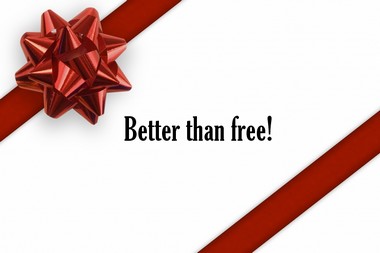
Got a great email from Galapagos today announcing a new initiative they are launching to micro-finance theater. I'm glad to see more stabs at this in the arts. There's a few in the film world as well, but what I like about this one is that it comes with the trusted "curation" from an arts organization that I, and many people, trust for quality. One that isn't nonprofit by the way.
There's nothing on the Galapagos website about this anywhere, so I post the email in its entirety below. I guess Galapagos is cutting edge everywhere but the web - like many an arts org!
We're creating ~ think social networking meets venture philanthropy ~ a micro-financing funding model based on the Nobel prize winning Grameen bank.
what is the Grameen bank?
_______________________________________________
Help produce theater.
For $100 you'll get:
· Part ownership of a new theater production, produced by Galapagos
Art Space
· Part ownership in a racehorse at
the horse and watch her race.
· Two tickets to the production, and you'll be invited to readings of the
work and to rehearsals. You'll get to meet the director and the actors at
a special cocktail party Galapagos Art Space will organize.
· A special ticket - at cost - to go skydiving with us.
What if we discover the next "Rent", or the next "A Chorus Line"? What if the theater piece we select one day goes to Broadway?
· As an owner of the work you'll own a share of the profits.
Why are we doing this?
· More than 25% of the once two hundred Off-Off-Broadway
theaters have closed in the last five years. And that was during an
unprecedented economic boom.
· We estimate that another 25% will disappear in this economic crisis,
within the next sixteen months.
Why is finding innovative ways to fund theater important for
·
important industries with a network of fine running paths or wonderful
bike trails. We don't compete for tourists with mountain views.
We compete with culture.
Other cities, cities like
- the ones our meritocracy would obviously miss the most - and they'll
get them if our artists can't set their foot on a stage or get their work on
a wall.
narrative or it's only expensive.
_______________________________________________
The next step:
We're looking for the right theater piece to begin this program with.
In the meantime, if you have questions, or thoughts, or you'd like to participate:
If you are an artist, email us at
No experience necessary! If you'd like to produce theater, email
Warm regards,
Robert Elmes
Director, Galapagos Art Space


